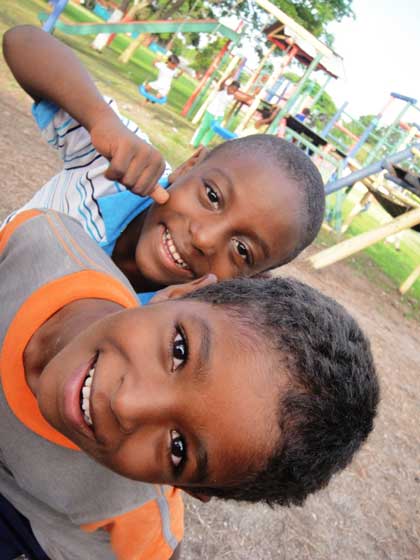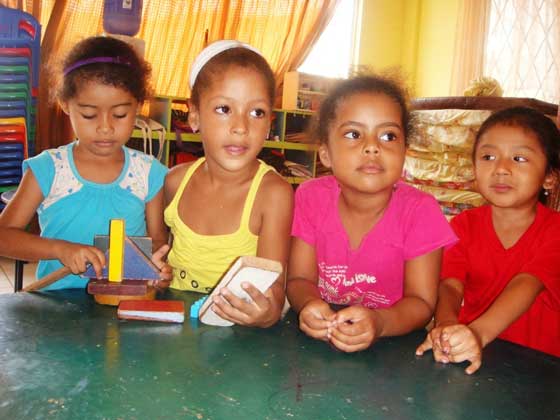Esmeraldas is one of the poorest regions of Ecuador
.jpg)
Esmeraldas is a coastal city in the far north-west of Ecuador, near the Colombian border. It has a population of around 158,000.Most people live off agriculture, but tourism is also an important source of income. However, the region is one of the poorest in Ecuador: around 65 per cent live in poverty. Thousands of families lack access to drinking water, paved roads, and sewage systems, and health care.
The region's proximity to the Colombian border means that a lot of drug trafficking goes on here.
Tourism also has some negative effects: in some cases tourists consume drugs and there are incidences of sexual violence, trafficking and women being forced into commercial sexual exploitation.
These aspects have a devastating effect on the safety of children, especially in poor families, where the lure of easy money puts many at risk of becoming entangled in dangerous activities.
Many families suffered further due to the earthquake in 2016. In April a 7.8 magnitude earthquake caused devastation in the area. Many homes and other buildings collapsed and families had to be moved into emergency shelters and provided with assistance.
Malnutrition endangers children's healthy development
Around 214,000 children and young people live in the province of Esmeraldas. Around 76 per cent of these live in poverty. Around ten per cent of children aren't able to live with their parents.
The illiteracy rate for adults in the province is nearly ten per cent, but in some areas it is as high as 17 per cent. Fortunately, the number of children attending school has increased. Over 90 per cent of children go to primary school but the figures then drops to 45 per cent for secondary school attendance.
Child labour is still a problem in the province, in some areas around ten per cent of children are working. Recent measures have been introduced to raise awareness on children's rights and support families so that children do not have to go out to work. The situation is improving, but more needs to be done, especially in rural areas.
One in five children suffers from chronic malnutrition. Poverty, or lack of information on nutrition, means that these children don't receive the food they need to grow healthily.
What we do in Esmeraldas
.jpg)
SOS Children’s Villages began working in the province of Esmeraldas in 1979.
Strengthen families: We aim to help families stay together. We provide material support, training, medical advice, education and counselling so that parents can care for their children.
Care in families: Children, who are unable to live with their parents, find a loving home in SOS families. They live with their brothers and sisters in houses that are integrated in the community. Wherever possible, children stay close to their family of origin and the community where they grew up. They attend the local schools and kindergartens alongside other children from the area.
While children are in our care, and wherever possible, we make sure they are in regular contact with their family of origin. When a child can go back to live with their family, we continue to support them.
Support for young people: Young people often struggle to find work and become independent in Esmeraldas. SOS Children's Villages counsellors help young people complete their education or training, take on new responsibilities and prepare them to live on their own.
Emergency Programme: After the earthquake in April 2016, we provided immediate aid to affected families and children.